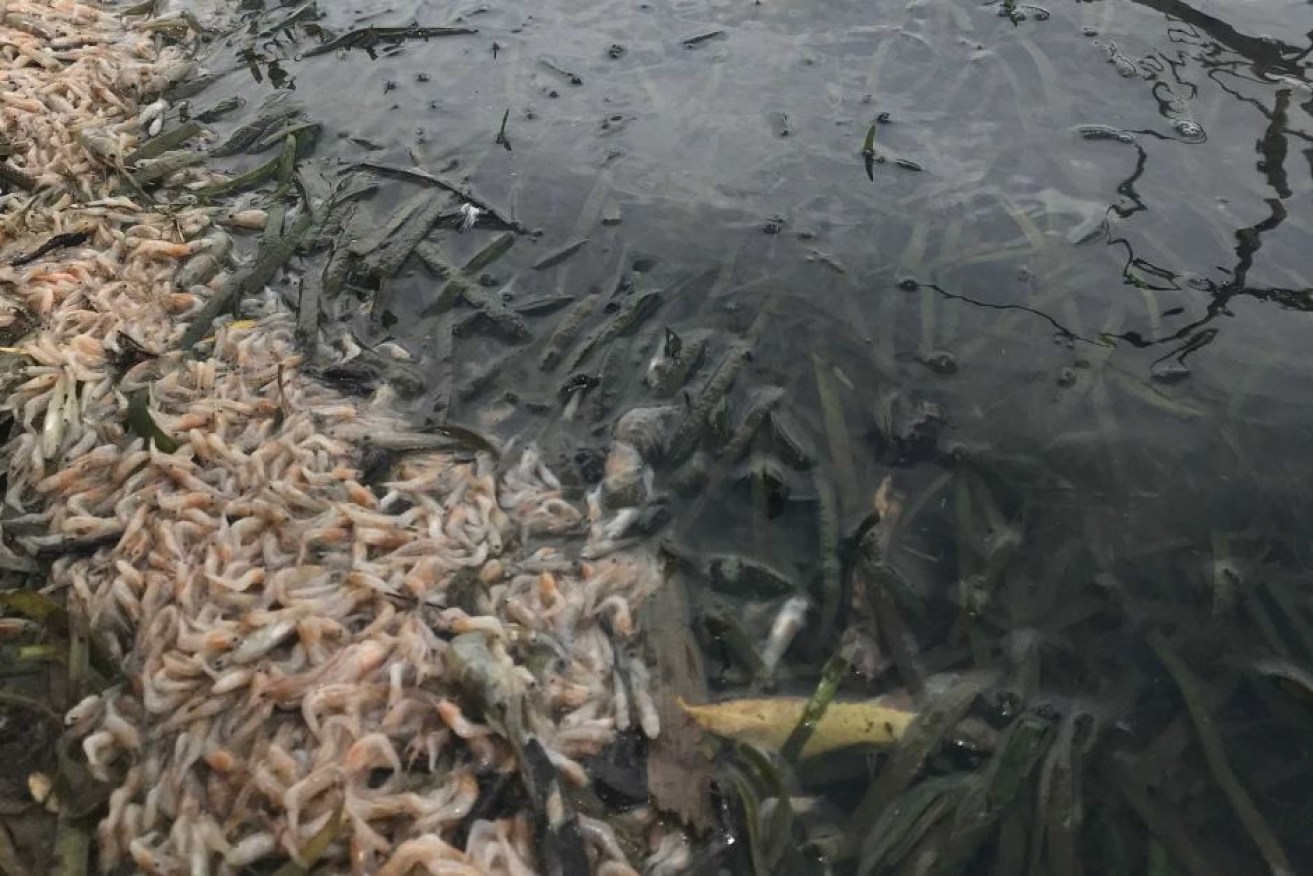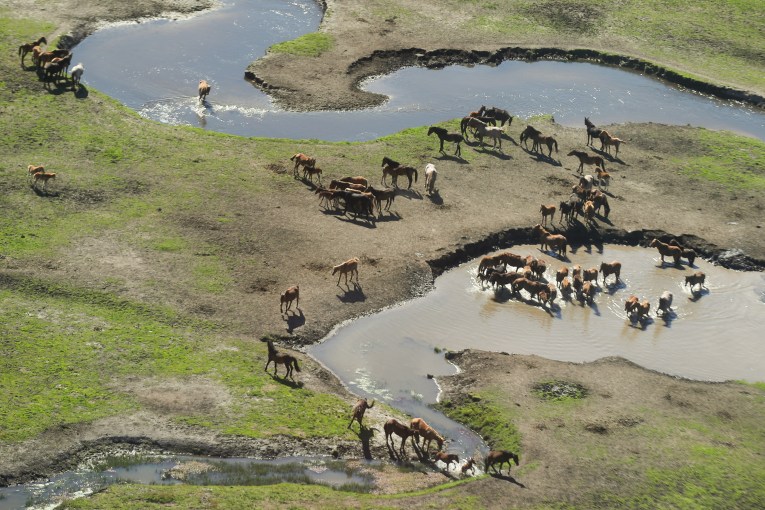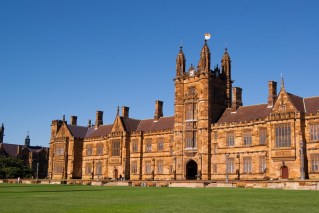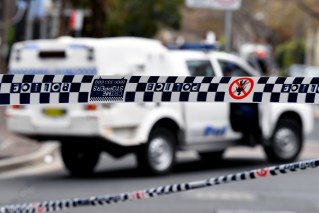Mass fish kills study ordered by federal government, as another mass fish death event reported in NSW

Many small juvenile fish washed up on the bank of Lake Inverell. Photo: NSW Department of Primary Industries
The federal government has ordered an independent study of the recent mass fish kills in the Lower Darling River.
It comes a day after the Opposition announced it had commissioned an independent review, by the Australian Academy of Science, into why hundreds of thousands of fish have died near Menindee, in far-western New South Wales.
The study also comes as the NSW Department of Primary Industries (DPI) revealed it was investigating reports of another fish kill at Lake Inverell, on the Macintyre River.
The NSW DPI said in a statement that thousands of fish, mainly juveniles between 2cm and 10cm in length, were found washed up on the banks of the lake yesterday, with some larger fish also found dead further upstream.
Species included golden perch, Murray cod, eel-tailed catfish, carp, gudgeon and freshwater shrimp.
The DPI said the water in the lake was “visibly stagnant” with a high algae content and a dark-green colouration to the water.

Species found dead include golden perch, Murray cod, eel-tailed catfish, carp, gudgeon, and freshwater shrimp. Photo: NSW Department of Primary Industries
Agriculture and Water Resources Minister David Littleproud said Melbourne University’s Dr Robert Vertessy would chair a “fair dinkum, independent” panel that must investigate how and why the fish kills in December and January happened.
“These fish kills were predicated by one of the largest droughts we’ve ever seen in this nation’s history and these events are natural. They have happened for centuries. They also happen in blackwater events and floods,” Mr Littleproud said.

Agriculture and Water Resources Minister David Littleproud. Photo: Getty
Mr Littleproud said the panel, to be selected by Dr Vertessy, would have access to state water managers including the NSW Department of Fisheries scientists.
It must consider the management and events that led up to the fish deaths, including the response.
It will provide recommendations to state and federal governments and the Murray-Darling Basin Authority in a bid to prevent future large fish kills.
Announcing what he called the fish kill “assessment” in Toowoomba, Mr Littleproud refuted the suggestion that irrigators upstream had contributed to the fish deaths.
“That is nonsense that cotton farmers are to blame for this,” Mr Littleproud said.
“At the start of every year, what happens is the water managers sit down and they have water flows for human consumption and for the environment and then everything that is left over goes to cotton farmers or to wheat farmers.”
“The reality is it’s done in a scientific way, so all we’re saying is let’s work through the science of how to better manage that water flow to allow the best outcomes not only for the environment but for the economy and also for us, the human beings within it.”
The NSW Department of Fisheries originally estimated up to one million fish had died as part of the fish kills, but so far federal authorities are yet to confirm the figure.
Opposition Leader Bill Shorten previously said he had originally asked Prime Minister Scott Morrison to provide bipartisan support for an emergency scientific taskforce, but Mr Morrison and his deputy Michael McCormack argued that federal and state water managers were already using expert advice to determine the health of the river system.
“I’ve written to the PM requesting this assessment, and the PM has agreed,” Mr Littleproud said, describing the Labor review as a political stunt.
The Greens used the announcement of the panel to renew calls for a royal commission into the Murray-Darling Basin Plan.
“Fish are dying because there is not enough water in the river,” Greens Senator Sarah Hanson-Young said.
Senator Hanson-Young also called for more water to be returned to the environment from irrigation, demanding an end to the current freeze on water buybacks.
Dr Vertessy is also the chair of the Murray-Darling Basin Authority’s independent advisory committee on social, economic and environmental Sciences.
A final report from Dr Vertessy’s panel is due by the end of March.
Meanwhile, the NSW DPI said with extreme conditions to continue over the coming months, it was likely more fish kills would occur “without significant rainfall to generate replenishment flows”.
–ABC








